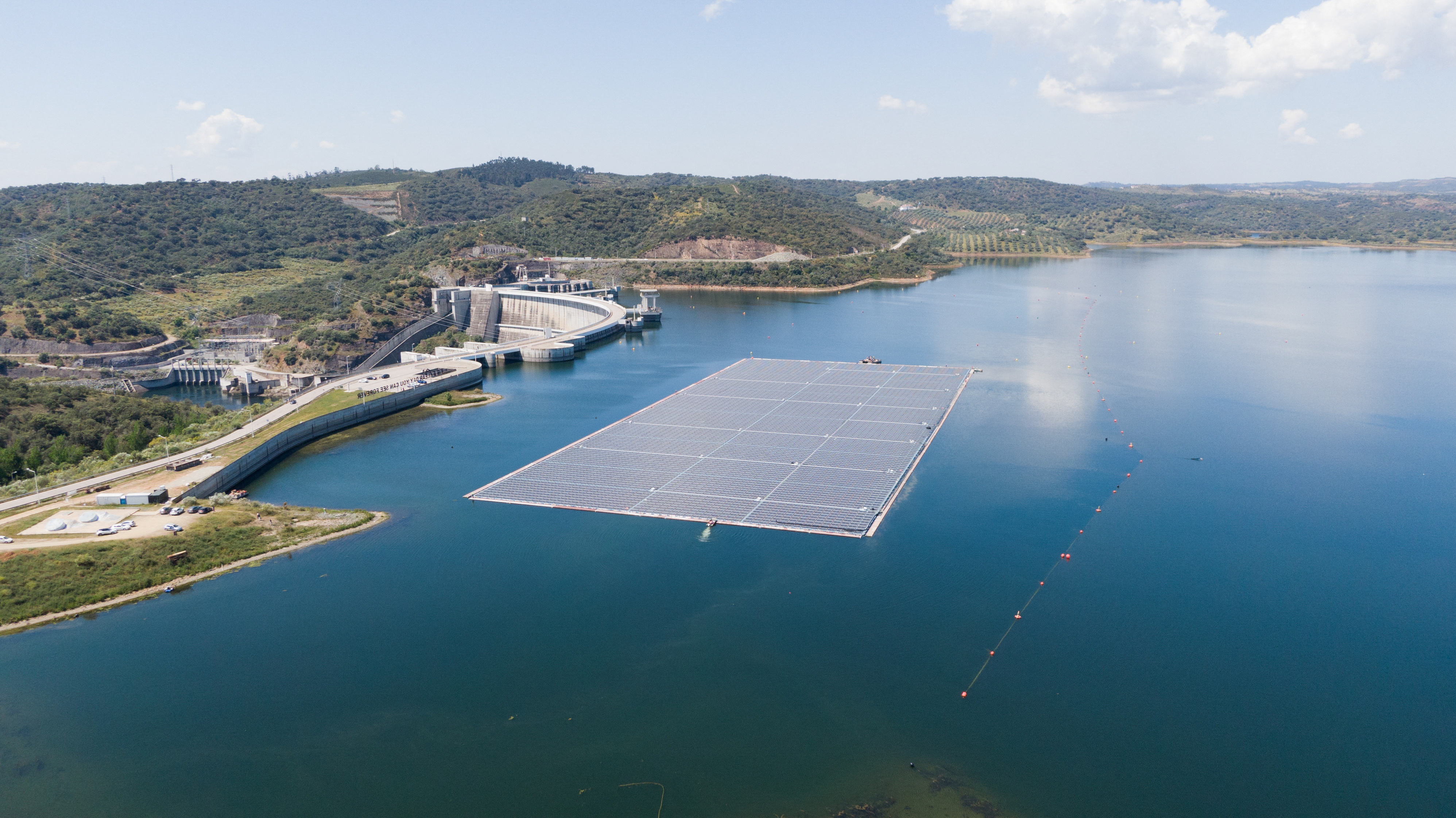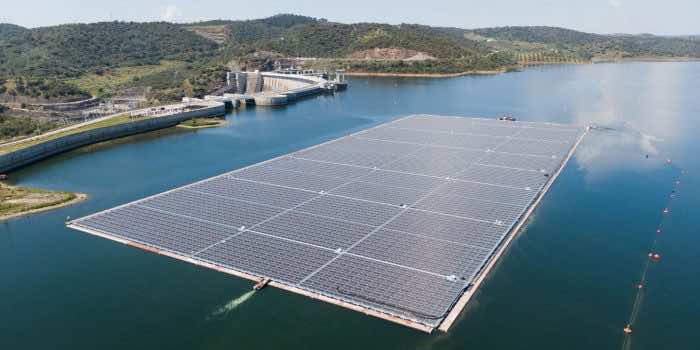With the ongoing conflict of the Russia and Ukraine invasion and the consequences of political repercussions, a lot of countries that are dependent on the supply of resources from Russia are now suffering due to the recent surge in the prices of imported products. Portugal, a southern European country, is one of those countries which is currently developing its own technology for solar energy to cut the costs imposed by Russia due to war. Russia used to supply 10% of natural gas to Portugal, but now Portugal is generating its own solar energy through the construction of a floating solar farm and is expected to start its operations formally in July. Through the production of this solar energy, Portugal would be able to sow the seeds of its own natural gas instead of importing it from Russia at exorbitant prices.
This floating solar farm is composed of up to 12000 solar panels, providing a whopping 7.5 Giga Watt-hour of energy annually. This is also a very cost-efficient process as it doesn’t need any type of land or buildings to generate solar energy by paying out huge rents on such places. Approximately 1500 households can be fed easily with this solar farm. Moreover, two lithium batteries would also be used with these solar panels that can reserve power for up to 2 gigawatt-hours.

The project will operate under the scrutiny of Portugal’s leading utility hub, i.e., “Energias de Portugal (EDP)”, located in the suburbs of the Alqueva hydroelectric dam and in the vicinity of the Spanish border, regarded as the “largest artificial lake in Europe”. According to the EDP group director, Miguel Patena, “This project is the biggest floating solar park on a hydro dam in Europe and it is a perfect benchmark.” EDP installed its prototype of the floating solar panel back in 2017 and has 840 panels on board. Keeping this in mind, the Alqueva project of EDP is the need of the hour in these times and is expected to go 100% green by the end of 2030, according to the EDP group director.
Not only has Portugal taken this initiative, but many other countries, like Singapore and Taiwan, are prime examples. Singapore’s floating solar farm can produce 60 MW of energy. At the same time, Taiwan’s plant has the potential to yield 45 megawatts, thereby aiming toward a greener and sustainable future for the generations to come.



